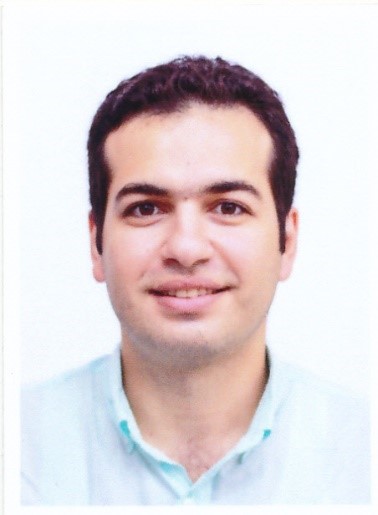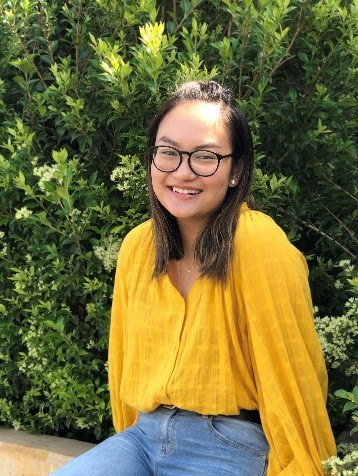UQCCR Seminar Series - Dr Mohammed Shaker and Tam Nguyen
Title: iPSC-derived CNS Organoids for disease modelling and drug screening
Speaker: Dr Mohammed Shaker
 Bio: A neuroscientist, Dr Shaker received his PhD in 2017 from Korea University, Seoul-South Korea, after working on the cellular behaviour of embryonic neural stem cells during the brain and spinal cord development as well as axial elongation. Dr Shaker obtained the Brain Korea 21 Plus Fellowship from the Korea University Medical School before being appointed in AIBN-UQ to work in Professor Ernst Wolvetang's laboratory as a Postdoctoral Research Fellow in Organoid Biology to continue his research into the importance of modelling the human central nervous system in health and disease using organoid technology.
Bio: A neuroscientist, Dr Shaker received his PhD in 2017 from Korea University, Seoul-South Korea, after working on the cellular behaviour of embryonic neural stem cells during the brain and spinal cord development as well as axial elongation. Dr Shaker obtained the Brain Korea 21 Plus Fellowship from the Korea University Medical School before being appointed in AIBN-UQ to work in Professor Ernst Wolvetang's laboratory as a Postdoctoral Research Fellow in Organoid Biology to continue his research into the importance of modelling the human central nervous system in health and disease using organoid technology.
Dr Shaker is currently a Children Hospital Foundation Fellow who leads a research program using stem cells to decipher the cellular and molecular mechanisms that control stem cell behaviour. This knowledge is applied to generate complex human tissues in a dish that recapitulate human system for studying disease mechanisms and advancing therapeutic discovery. Dr Shaker’s works were published in the top tier specialised and multidisciplinary journals, and currently leading multidisciplinary teams on multiple projects focusing on CNS diseases.
Overview: The first part of the talk will discuss why individuals with Down Syndrome (DS, trisomy 21) are particularly susceptible to SARS-CoV-2 induced neuropathology remains largely unclear. The choroid plexus (CP) performs important barrier and immune-interface functions, and strongly expresses the ACE2 receptor and the chromosome 21 encoded TMPRSS2 protease. To investigate the role of the CP in SARS-CoV-2 central nervous system infection in DS, we established a new type of brain organoid from DS and isogenic euploid control iPSC that consists of a core of appropriately patterned functional cortical neuronal cell types that is surrounded by a patent and functional choroid plexus (CPCOs).
The second part of the talk will discuss a recent development of brain organoids model enriched with oligodendrocytes which model leukodystrophy (HBSL), group of inherited disorders characterised by degeneration of the white matter in the brain, primarily affecting children. Children with leukodystrophy, and HBSL in particular, develop progress leg spasticity and cognitive impairment from an early age (3-36 months), whereas the severe form of the disease results in early lethality. Studies have identified mutations in the DARS gene accounts for the variability of the disease. However, there are currently no cures for HBSL, life expectancy is a few years, and quality of life is extremely poor. I will discuss how this new oligodendrocyte brain organoids model can reveal for the first time key cellular and molecular drivers of pathology across all subtypes of HBSL.
Title: Low lymphatic return and high capillary leak contribute to low blood volume in preterm piglets
Speaker: Tam Nguyen
 Bio: Tam Nguyen is a third year PhD student in the Perinatal Research Centre. Her research focuses on understanding cardiovascular physiology in preterm infants over the first day of life. She plans to continue investigating ways to improve cardiovascular support in preterm infants, with the hope of improving long-term outcomes.
Bio: Tam Nguyen is a third year PhD student in the Perinatal Research Centre. Her research focuses on understanding cardiovascular physiology in preterm infants over the first day of life. She plans to continue investigating ways to improve cardiovascular support in preterm infants, with the hope of improving long-term outcomes.
Overview: Preterm birth is the second-leading cause of all perinatal deaths in Australia. Those who survive are at increased risk of adverse neurodevelopmental outcomes, and current treatments do not improve these outcomes. Excessive fluid movement out of the capillaries after birth may lead to hypovolemia in some preterm newborns if not matched by high lymphatic return. Multiple factors may increase capillary leak after birth but there is no information on preterm lymphatic function. We aimed to determine changes in blood volume, lymphatic return and capillary leak in the early postnatal period in term and preterm piglets.
About UQCCR Seminar Series
UQCCR Seminar Series
The UQ Centre of Clinical Research (UQCCR) Seminars are held fortnightly on Wednesdays from 12 pm - 1 pm (except during school holidays) currently on Zoom. The series features topics in multiple research fields, presented by invited international, interstate and local researchers.
